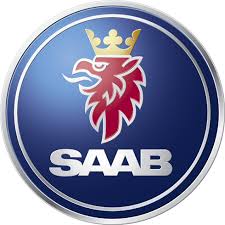9-5 (9600) L4-2.3L Turbo (2.3 T) (2006)
/l4-2.3l_turbo_(2.3_t)/Page-848002.png)
During the power stroke the piston is pressed against the cylinder wall due to the angle of the connecting rod relative to the cylinder. At higher engine
speeds, however, the inertial force is much greater. It can then be said that the crankshaft pulls the piston down and due to the angle of the connecting
rod relative to the cylinder the piston is pressed against the cylinder wall, but this time on the opposite side. The combined gas and inertial forces
acting in a sideways direction vary periodically twice per crankshaft revolution and cause the engine to vibrate in a lateral direction.
The Saab balancer shaft system
Saab has used the balancer-shaft principle to cancel out second-order inertial forces. Two balancer shafts positioned symmetrically on the sides of the
engine block but at different heights above the crankshaft centreline are fitted with eccentrically mounted balance weights. The shafts are driven by a
chain and rotate in opposite directions to each other at twice the crankshaft speed.
At 90° and 270° the common centre of gravity of the ascending and descending masses is situated lower down in the engine block than at 0° and 180
°. The balancer shaft weights must therefore be directed upwards. At 0° and 180° the centre of gravity has moved upwards and the balancer shaft
weights must therefore be directed downwards.
Since the balancer shafts are situated at different heights above the crankshaft centreline, they also cancel out lateral forces. The torque generated by
the balancer shafts is designed to counteract the gas and inertial forces acting in a sideways direction.
The balancer shafts are of identical design and are supported by aluminum bushes in the middle (between cylinders 2 and 3). The bushes are a press fit
in the block and are lubricated via separate oilways.
For the balancer shafts to perform as intended, it is absolutely essential for them to be precisely aligned on assembly. Sprocket assemblies of different
design for the exhaust and inlet sides are therefore used on the shafts and marked with identifying text.
The balancer shaft, chain sprocket and bearing housing are assembled as a single unit before being mounted in the cylinder block. This unit is then
